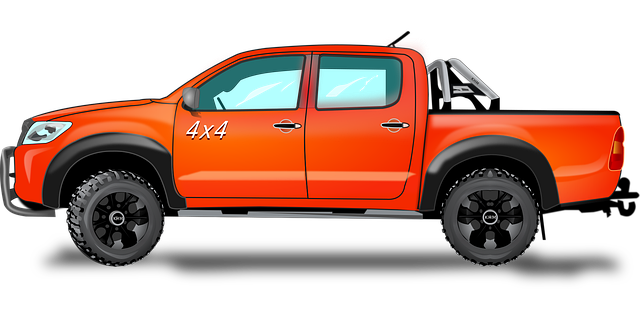Running a successful truck rental company requires understanding and adhering to varying state insurance requirements. A comprehensive rental truck insurance policy should include liability, physical damage, roadside assistance, and loss of use compensation. Key types of coverage include rental truck liability, temporary truck insurance, and rented vehicle insurance. Businesses should prioritize policies that meet their specific needs, evaluating options from different insurers for adequate truck rental coverage, including liability protection and physical damage coverage. Correctly chosen policies offer peace of mind and safeguard against potential claims.
In today’s competitive market, ensuring robust protection for your rental truck fleet is non-negotiable. Comprehensive insurance for truck rental companies goes beyond basic coverage, addressing unique risks associated with temporary vehicles. This article guides you through the intricacies of rental truck insurance requirements, offering insights into essential types of coverage and practical tips to select the ideal policy. Discover how to protect your business from potential liabilities and navigate the complexities of insured rentals successfully.
- Understanding Rental Truck Insurance Requirements
- Types of Coverage for Truck Rental Companies
- How to Choose the Right Rental Truck Policy
- Protecting Your Business: Essential Tips for Rental Truck Liability Coverage
Understanding Rental Truck Insurance Requirements

When running a truck rental company, it’s essential to have a comprehensive understanding of your insurance requirements. Rental truck insurance isn’t a one-size-fits-all proposition; different states and rental periods may demand specific coverage types. Typically, temporary truck insurance or a rental truck policy should include several key components to protect both the business and the rented vehicles. These usually encompass liability coverage, which shields against damages caused to others’ property or injuries they sustain during an accident involving your rented trucks.
Additionally, insurance for rented trucks often includes physical damage coverage, which can help cover repairs or replacements if a rental vehicle is damaged due to an accident or other unforeseen events. Some policies may also offer extras like roadside assistance and loss of use coverage, which compensates the customer if their rented truck is out of commission while repairs are being made. Ensuring that your rental business has adequate truck rental coverage is crucial for maintaining financial stability and customer satisfaction.
Types of Coverage for Truck Rental Companies

When it comes to insuring rental trucks, there are several key types of coverage that truck rental companies need to consider. First and foremost is rental truck liability coverage, which protects against claims arising from accidents or damage to third-party property while the vehicle is in use. This essential component ensures that your business is shielded from significant financial losses if a client’s rented truck is involved in an incident.
Beyond liability, temporary truck insurance and rented vehicle insurance packages often include comprehensive and collision coverage. Comprehensive covers non-impact related damages like theft or natural disasters, while collision insurance pays for damage to the rental truck itself, up to the limits of your policy. Additionally, specific rental truck policy add-ons may be necessary, depending on the nature of your business, such as cargo insurance to protect the goods being transported in the rented vehicle.
How to Choose the Right Rental Truck Policy

When selecting the ideal rental truck policy, businesses should consider their specific needs and the unique risks associated with truck rentals. The primary goal is to secure comprehensive rental truck insurance that offers adequate truck rental coverage. This includes evaluating different policy options available from various insurers. Look for a policy that provides liability coverage, protecting against claims related to accidents or damage to others’ property. Additionally, ensure the policy includes physical damage coverage to safeguard against any harm to the rented vehicle.
Business owners should also assess the need for temporary rental truck insurance when acquiring vehicles on a short-term basis. This ensures that during peak seasons or sudden surges in demand, your rental business is adequately insured without unnecessary long-term commitments. Moreover, consider the type of trucks in your fleet; different vehicles may require specialized coverage due to their unique features and use cases. Thus, a tailored rental truck policy should align with your business’s operational scope, ensuring optimal protection for both your assets and customers’ peace of mind.
Protecting Your Business: Essential Tips for Rental Truck Liability Coverage

Protecting your business with adequate insurance is non-negotiable when running a truck rental company. With each rental, there’s a unique set of risks and liabilities that come into play. The right rental truck insurance policy acts as a shield against potential financial losses. It covers not just the physical vehicle but also any legal responsibility arising from accidents or damages caused during the rental period.
When considering your rental truck coverage, ensure it includes liability protection, which can help manage costs if a client’s property is damaged or if someone suffers injuries while using your rented vehicle. Additionally, temporary truck rental insurance policies often come with specific exclusions and limitations, so carefully review the policy to understand what’s covered and what’s not. For instance, some policies might exclude high-risk activities or certain types of cargo. Choosing a suitable rental truck policy ensures peace of mind and safeguards your business from potential claims and financial strain.
When running a successful truck rental company, prioritizing the right insurance is paramount. By understanding the essential coverage options available, such as comprehensive, collision, and liability insurance, you can protect your business and assets effectively. Choosing the ideal rental truck policy involves evaluating your specific needs, fleet size, and risk exposure. Remember that adequate rental truck liability coverage is crucial to safeguard against potential claims and legal repercussions. With the right insurance in place, you’ll have one less concern, enabling you to focus on providing exceptional service and growing your rental business with confidence.
